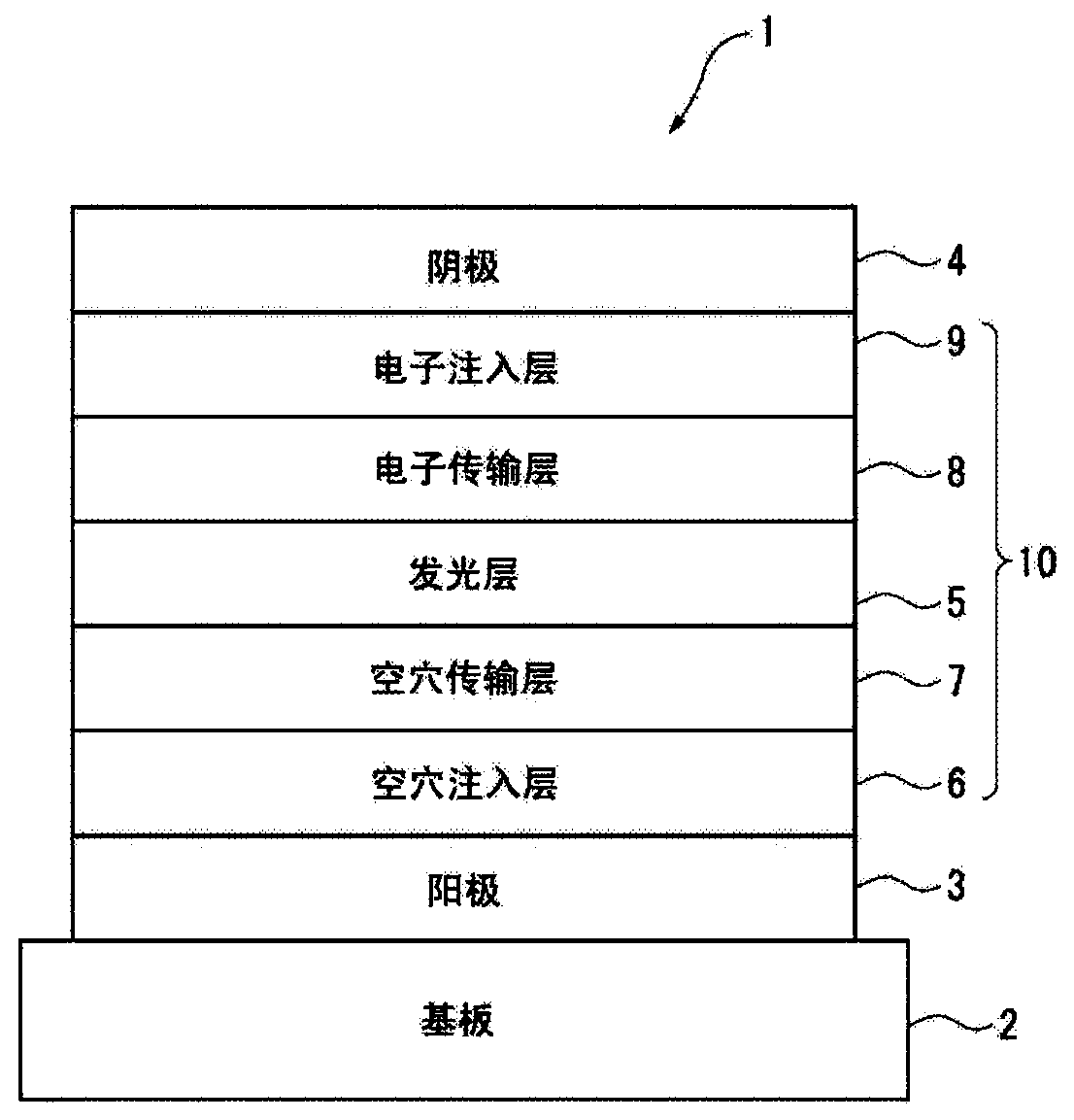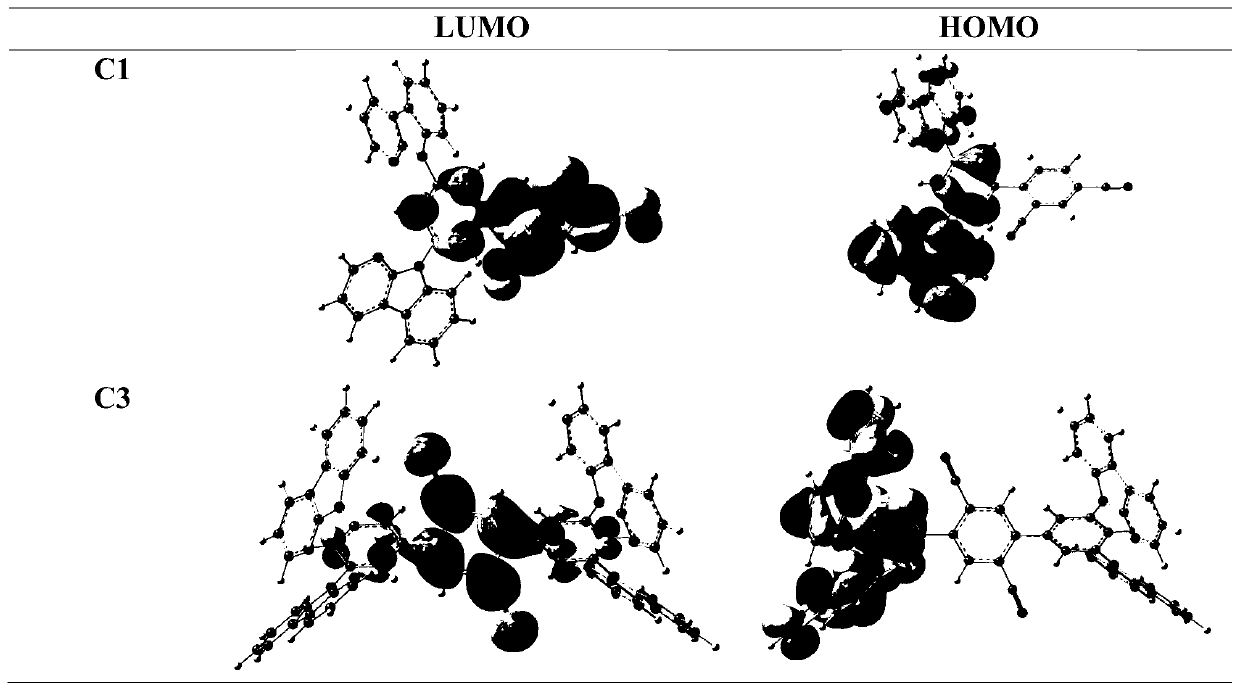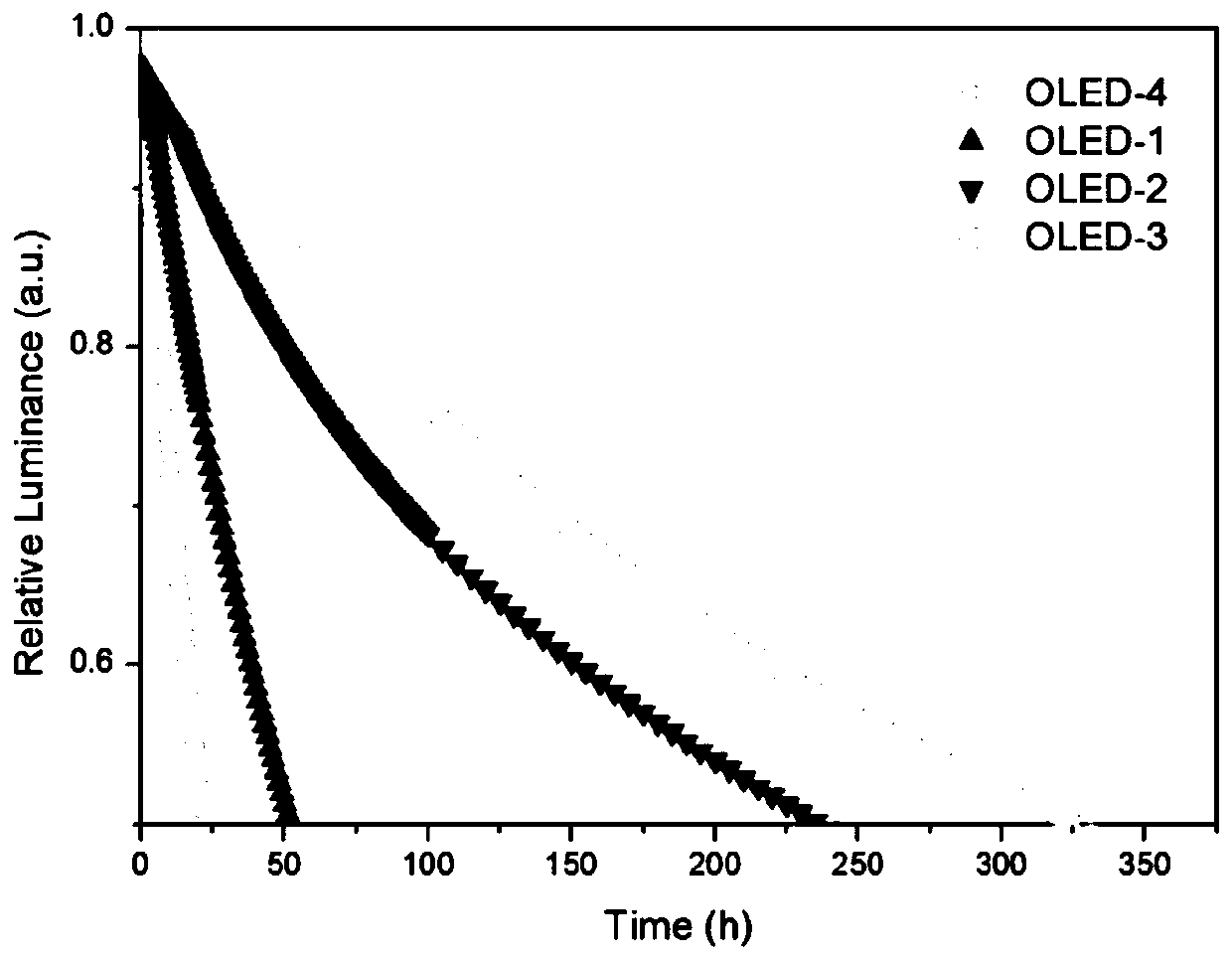An organic electroluminescent device
An electroluminescent device, organic technology, applied in the fields of electro-solid devices, organic chemistry, luminescent materials, etc., can solve the problems of device efficiency and life reduction, device life reduction, oxidation and other problems
- Summary
- Abstract
- Description
- Claims
- Application Information
AI Technical Summary
Problems solved by technology
Method used
Image
Examples
Embodiment 1
[0097] Embodiment 1: Preparation of OLED-1
[0098] The glass plate coated with the ITO transparent conductive layer is ultrasonically treated in a cleaning agent, rinsed in deionized water, ultrasonically degreased in acetone and ethanol mixed solvent, baked in a clean environment until the water is completely removed, and then treated with ultraviolet light and ozone cleaning, and bombard the surface of the ITO transparent conductive layer with a low-energy positive ion beam to obtain a glass substrate 2 with an anode 3, wherein the ITO transparent conductive layer is the anode 3.
[0099] Place the above-mentioned glass plate 2 with the anode 3 in the vacuum chamber, and evacuate to 1×10 -5 ~9×10 -3 Pa, HAT-CN was vacuum-deposited on the above-mentioned anode as the hole injection layer 6, the evaporation rate was 0.1nm / s, and the evaporation film thickness was 5nm. Then, NPB with a thickness of 20 nm and TCTA with a thickness of 20 nm were sequentially evaporated at a ra...
Embodiment 2
[0107] Embodiment 2: Preparation of OLED-2
[0108] This embodiment is basically the same as the embodiment 1, the difference is that: the luminescent material is DPEPO: 8%wtC3.
Embodiment 3
[0109] Embodiment 3: Preparation of OLED-3
[0110] This embodiment is basically the same as the embodiment 1, the difference is that: the luminescent material is DPEPO: 8%wtC9.
PUM
 Login to View More
Login to View More Abstract
Description
Claims
Application Information
 Login to View More
Login to View More - R&D
- Intellectual Property
- Life Sciences
- Materials
- Tech Scout
- Unparalleled Data Quality
- Higher Quality Content
- 60% Fewer Hallucinations
Browse by: Latest US Patents, China's latest patents, Technical Efficacy Thesaurus, Application Domain, Technology Topic, Popular Technical Reports.
© 2025 PatSnap. All rights reserved.Legal|Privacy policy|Modern Slavery Act Transparency Statement|Sitemap|About US| Contact US: help@patsnap.com



